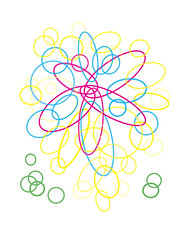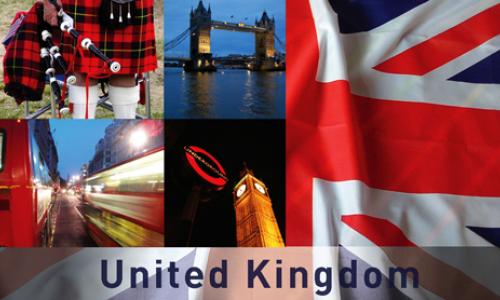
Ah... the soothing, metallic lullaby of Neocitran in the evening.
Some people don't like the taste, but to me, it's just the lemony flavour of a good night's sleep. I would drink it even if I wasn't feeling sick. Throw a little touch of honey in for good measure - it helps the sore throat, you know - and you're set.
Getting sick is one of those things that just seems to happen to me two or three times a year, every year. There were even a few years in which I got a different throat infection each summer - mono, strep throat, you name it. My immune system and I seem to have vastly different ideas about when is a good time to get sick. Actually, now that I think about it, it may be a matter of similarity more than one of difference. We seem to like taking breaks around the same time. For instance, we both took time off around Christmas last year, so I got to spend most of that vacation with some kind of flu.
What's up with that? I mean, can't a guy spend several long hours snowmobiling at the lake in severely cold temperatures without having to worry about contracting the plague? Can't a grown man forgo sleep for a couple days, in the name of working two jobs and writing a thesis, without having to worry about coming down with some absurdly annoying cold a few days later?
It's almost like my body's sending me a message that I'm not 18 anymore. The nerve.
There were a lot of messages that I grew up with, whether it be from my parents, peers, or the all-encompassing influence of the media. One of the ones that sticks with me most to this day, and I'm not sure where it comes from, has to do with the kind of self-sacrifice I described above. I do remember hearing things from my dad - things like how I should strive to make myself as useful as possible at any job I have, so that I can... be useful, I suppose. But also things like how I should focus on doing something I love to do. There's a funny story about my dad relating to that one, actually - I think I'll write about it next week.

For now, I want to focus on influences. What do I mean by influences? Well, simply put, influences are those things that have some kind of effect on our life - our perspectives, our choices, our actions, etc., whether we are aware of those things or not. Many of our influences are things that are easy to see - money, geography, role models, things like that. I'll call these explicit influences, because we know about them and at least some of their effects on our lives. But there's another family of influences, which I'll call implicit influences, that exist outside of or underneath our awareness, yet still carry a lot of weight in our everyday lives. These are the things that are just kind of automatic - it's almost like we take them for granted. The thing is, these influences have often been behind the scenes for so long that it often takes either a lot of dedicated effort or a special life circumstance to bring them back into sight.
When's the last time you had one of those "aha" moments in regards to your own insight about yourself? A time when you really just kind of saw the things impacting your life that a moment ago you couldn't? It's a wonderful, fleeting moment of clarity. It's the kind of thing that a lot of people pay hundreds, thousands of dollars to go to therapy for.
A lot of career and self-help advice kind of ignores influences in the name of new-agey sounding things like "intentionality" and "dream careers" and the like. But we can't just wish our way into a life that we think sounds good. It's important to acknowledge the explicit influences on our lives - not just those that impose limits, but those that open doors as well. They may even be the same thing! We want to be realistic, with a healthy dose of optimism for good measure.
But what about the stuff we haven't discovered about ourselves yet? As a colleague of mine would say, there's a lot of deep sea diving to be done. So where's your scuba gear?
Those implicit influences can be hard to discover, but they can also be powerful realizations - windows into a part of yourself that you almost didn't even know existed. Perhaps you'll suddenly be able to put words, definition to something that was only a vague, fuzzy shape before. You might realize that the way you treat another person, for instance, really has more to do with a feeling that you have about yourself (pretty much all psychological theories discuss something like this, but psychoanalysis has a fancy name for it: projection).

I'm going to leave off with questions - partly because there are no substantive answers I can write about in a short space, and partly because the Neocitran is kicking in and it's about time for me to drift off to a nice, antihistamine-induced sleep.
How are you going to learn more about the influences in your life that you aren't yet aware of? How can an implicit influence become explicit? How will that information affect your career and life decision making?

















